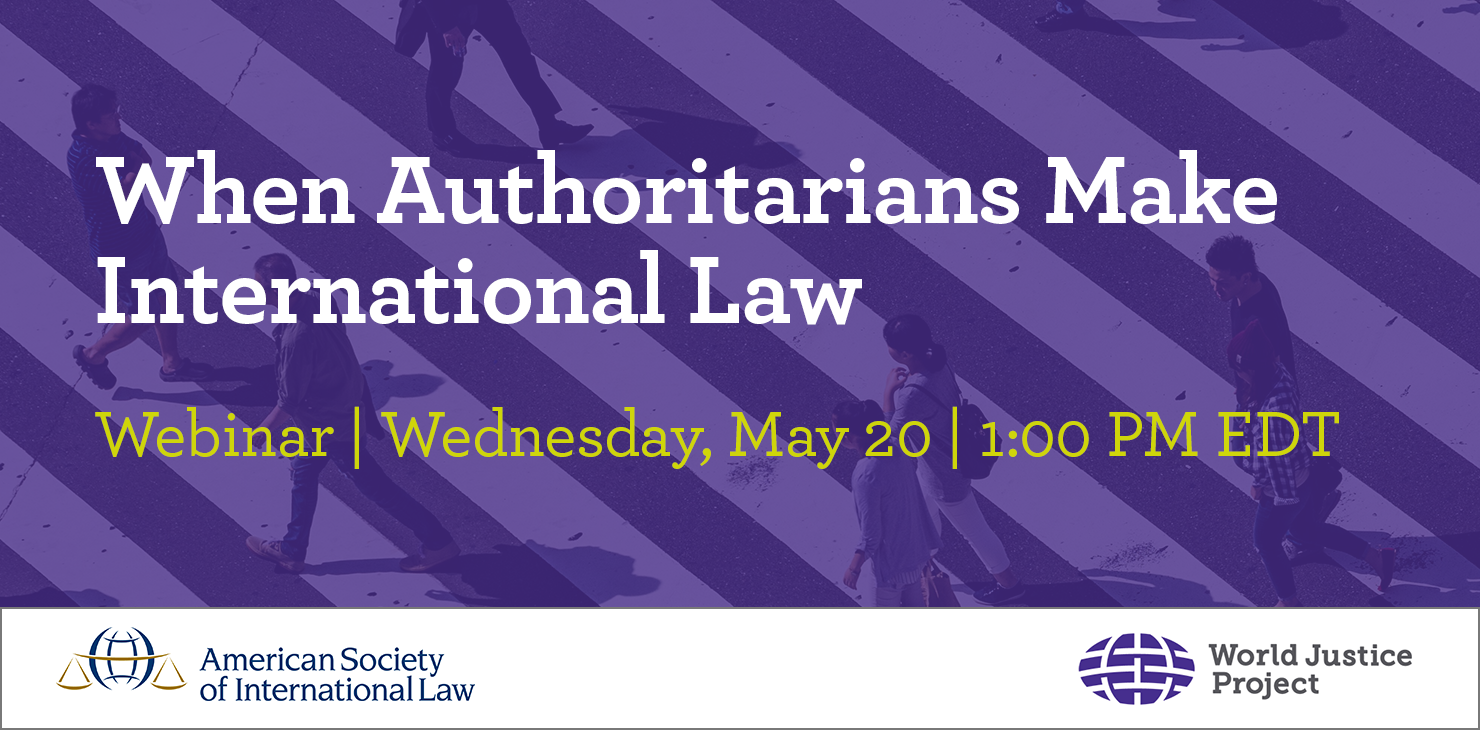

Authoritarianism is on the rise in many parts of the world. For the third year in a row, the recently released 2020 WJP Rule of Law Index found the rule of law declining in more countries than not, particularly with respect to constraints on government authority. Dozens of recent books chronicle rising authoritarianism and question whether democracies can survive. What do these trends mean for international law and practice? In an article recently published in the American Journal of International Law, Professor Tom Ginsburg tackles this question, finding the post-Cold War period of "liberal international law" giving way to a new era in which authoritarian states promote a conception of international law designed to reinforce their rule and extend their influence. This webinar event featured a discussion with Professor Ginsburg about his findings and their implications in contemporary policy contexts, including management of the global COVID-19 pandemic.
Watch the event recording below.
When Authoritarians Make International Law
Event Recorded May 20, 2020
Panelists:
- Professor Tom Ginsburg, Leo Spitz Professor of International Law and Professor of Political Science, University of Chicago
- Jacques deLisle, Stephen A. Cozen Professor of Law and Professor of Political Science and Director, Center for East Asian Studies, University of Pennsylvania Carey Law School
- Andrea Kendall-Taylor, Senior Fellow and Director, Transatlantic Security Program, Center for a New American Security
- Mark D. Agrast, Executive Director, American Society of International Law (moderator)






